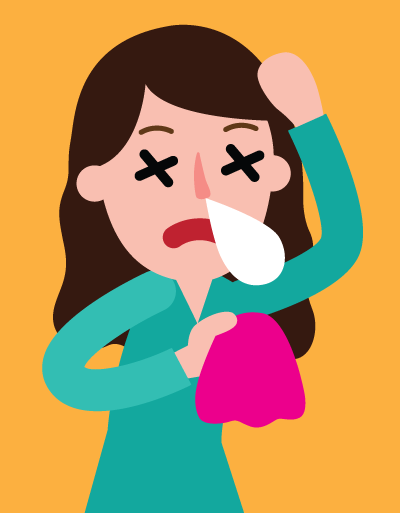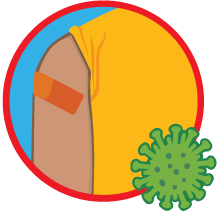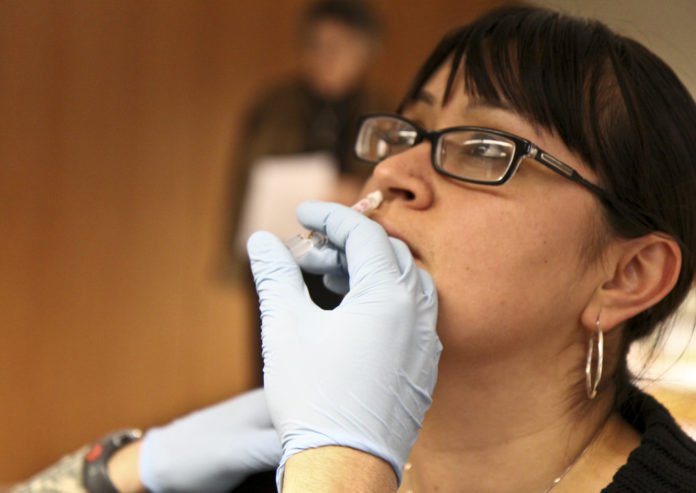It is always better to get vaccinated than not to get vaccinated
 It is flu season once more and as numbers in the USA cause panic – in India winter is yet to kick in and the influenza virus is not having a field day just yet – experts have called for a universal flu vaccine. The flu vaccine which is really the cornerstone of influenza prevention has to be updated every year as per World Health Organisation updates in February on the circulating strain.
It is flu season once more and as numbers in the USA cause panic – in India winter is yet to kick in and the influenza virus is not having a field day just yet – experts have called for a universal flu vaccine. The flu vaccine which is really the cornerstone of influenza prevention has to be updated every year as per World Health Organisation updates in February on the circulating strain.
In an authored article in the New England Journal of Medicine, infectious disease experts from the National Institutes of health argued: “However imperfect, though, current influenza vaccines remain a valuable public health tool, and it is always better to get vaccinated than not to get vaccinated. In this regard, the CDC estimates that influenza vaccination averted 40,000 deaths in the United States between the 2005–2006 and 2013–2014 seasons. Yet we can do better. Although targeted research to improve current vaccine antigens, platforms, and manufacturing strategies may in the short term lead to enhanced effectiveness of seasonal influenza vaccines, to achieve the ultimate objective of a universal influenza vaccine, a broad range of expertise and substantial resources will be required to fill gaps in our knowledge and develop a transformative approach to influenza-vaccine design.”
The perspective article in the prestigious journal estimated that seasonal influenza epidemics cause 3 million to 5 million severe cases and 300,000 to 500,000 deaths globally each year, according to the World Health Organization (WHO). The United States alone sees 140,000 to 710,000 influenza-related hospitalizations and 12,000 to 56,000 deaths each year, with the highest burden of disease affecting the very young, the very old, and people with coexisting medical conditions. In India one child is said to die every minute of either pneumonia or diarrhoea. This prompted the government to introduce an influenza vaccine in the universal immunisation programme earlier this year. The commonly used vaccine contains Influenza Vaccine (A&B)& H1N1 Vaccine (Swine Flu) strains.
Whether the vaccine being used in a particular year is matched to the circulating strain has a direct bearing on the pneumonia burden in that year. The NEJM authors noted:”For example, during the 2014–2015 influenza season in the United States, more than 80% of the circulating influenza A (H3N2) viruses that were characterized differed from the vaccine virus, and vaccine effectiveness was only 13% against influenza A (H3N2).2 This mismatch most likely contributed to the severity of the 2014–2015 influenza season and the substantial related morbidity and mortality among people over 65 years of age.”
Here are some facts about flu vaccine from CDC website
 FLU VACCINE
FLU VACCINE
Protects You And Your Family
Flu Can Be Serious
The flu is a contagious respiratory illness caused by influenza viruses that infect the nose, throat, and lungs. It can cause mild to severe illness and, at times, can lead to death.
 Flu Vaccine Is The Best Protection
Flu Vaccine Is The Best Protection
Everyone 6 months and older should get a flu vaccine each year. Flu vaccines…
- Can keep you from getting sick with flu
- Can reduce the risk of flu-associated hospitalizations including among children and older adults
- Are very important for people with chronic health conditions like diabetes and heart and lung disease
- Help protect both pregnant women and their babies for several months after birth from the flu
- May make your illness milder if you do get sick Each year, CDC reports the number of flu illnesses, medical visits, and hospitalizations prevented by flu vaccination.

CDC recommends that people get a flu vaccine by the end of October, if possible. However, getting vaccinated later can still be beneficial. Ongoing flu vaccination is recommended as long as flu viruses are circulating, even into January or later. Every flu season is different, and the flu can affect people differently. Every flu season millions of people get the flu, hundreds of thousands of people are hospitalized and thousands or tens of thousands of people die from flu-related causes.


